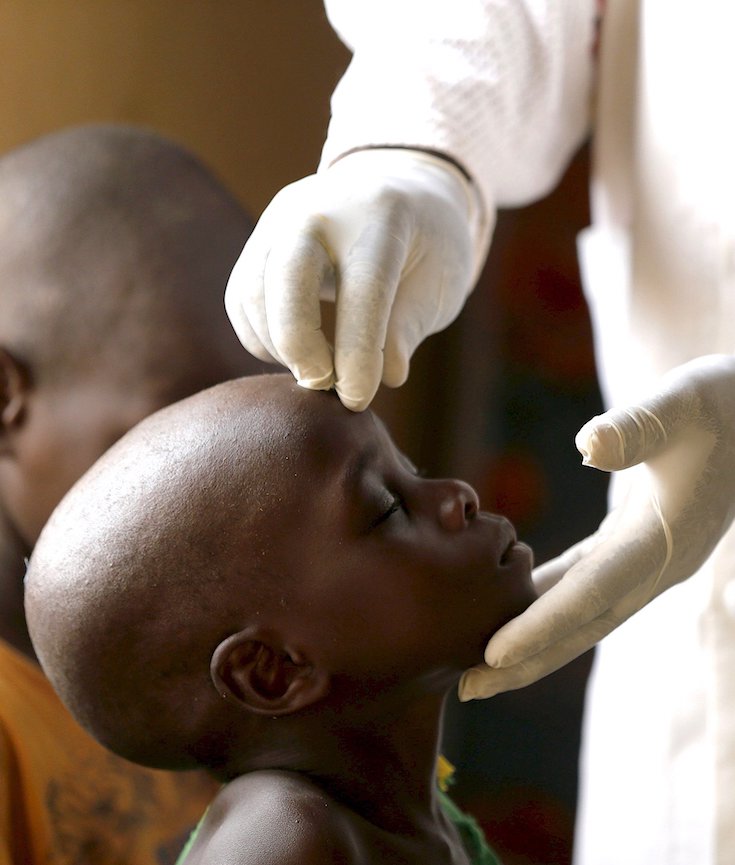Fati Adamu has not seen three of her six children nor her husband since Boko Haram fighters attacked her hometown in northeast Nigeria in a hail of gunfire.
Two years on, she is among thousands of refugees at the Bakassi camp in Maiduguri, the city worst hit by a seven-year-old conflict that has forced more than two million people to flee their homes.
[mc4wp_form id=”6042″]
The United Nations says 400,000 children are now at risk from a famine in the northeastern states of Borno, Adamawa and Yobe – 75,000 of whom could die from hunger within the next few months.
 Photo | REUTERS/Afolabi Sotunde
Photo | REUTERS/Afolabi Sotunde
 Photo | REUTERS/Afolabi Sotunde
Photo | REUTERS/Afolabi Sotunde
 Photo | REUTERS/Afolabi Sotunde
Photo | REUTERS/Afolabi Sotunde
Nigeria is a federal constitutional republic in West Africa, bordering Benin in the west, Chad and Cameroon in the east, and Niger in the north. Its coast in the south lies on the Gulf of Guinea in the Atlantic Ocean. It comprises 36 states and the Federal Capital Territory, where the capital, Abuja is located. Its largest cities include Lagos, Kano, Ibadan, Benin City and Port Harcourt. Nigeria is officially a democratic secular country.
Modern-day Nigeria has been the site of numerous kingdoms and tribal states over the millennia. The modern state originated from British colonial rule beginning in the 19th century, and the merging of the Southern Nigeria Protectorate and Northern Nigeria Protectorate in 1914. The British set up administrative and legal structures whilst practising indirect rule through traditional chiefdoms. Nigeria became a formally independent federation in 1960, and plunged into a civil war from 1967 to 1970. It has since alternated between democratically-elected civilian governments and military dictatorships, until it achieved a stable democracy in 1999, with the 2011 presidential elections considered the first to be reasonably free and fair.
Nigeria is often referred to as the “Giant of Africa”, owing to its large population and economy. With approximately 184 million inhabitants, Nigeria is the most populous country in Africa and the seventh most populous country in the world. Nigeria has one of the largest populations of youth in the world. The country is viewed as a multinational state, as it is inhabited by over 500 ethnic groups, of which the three largest are the Hausa, Igbo and Yoruba; these ethnic groups speak over 500 different languages, and are identified with wide variety of cultures. The official language is English. Nigeria is divided roughly in half between Christians, who live mostly in the southern part of the country, and Muslims in the northern part. A minority of the population practise religions indigenous to Nigeria, such as those native to Igbo and Yoruba peoples. (Wikipedia)


You must be logged in to post a comment.